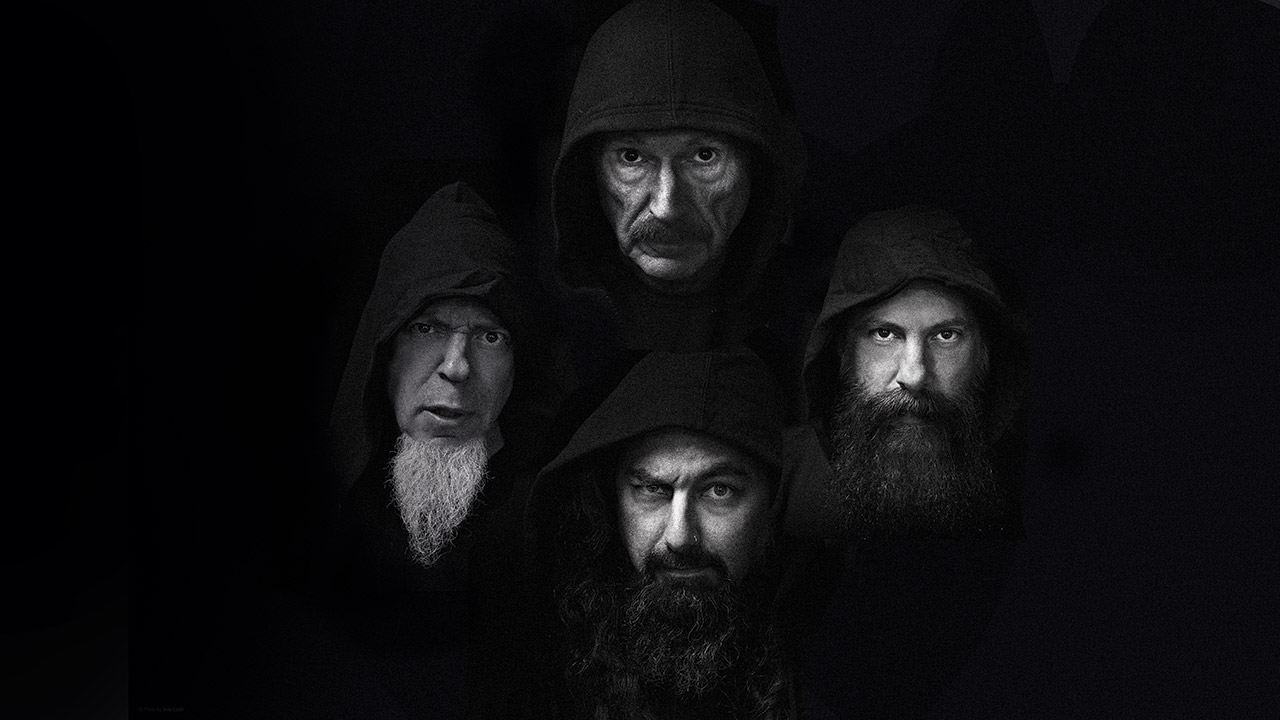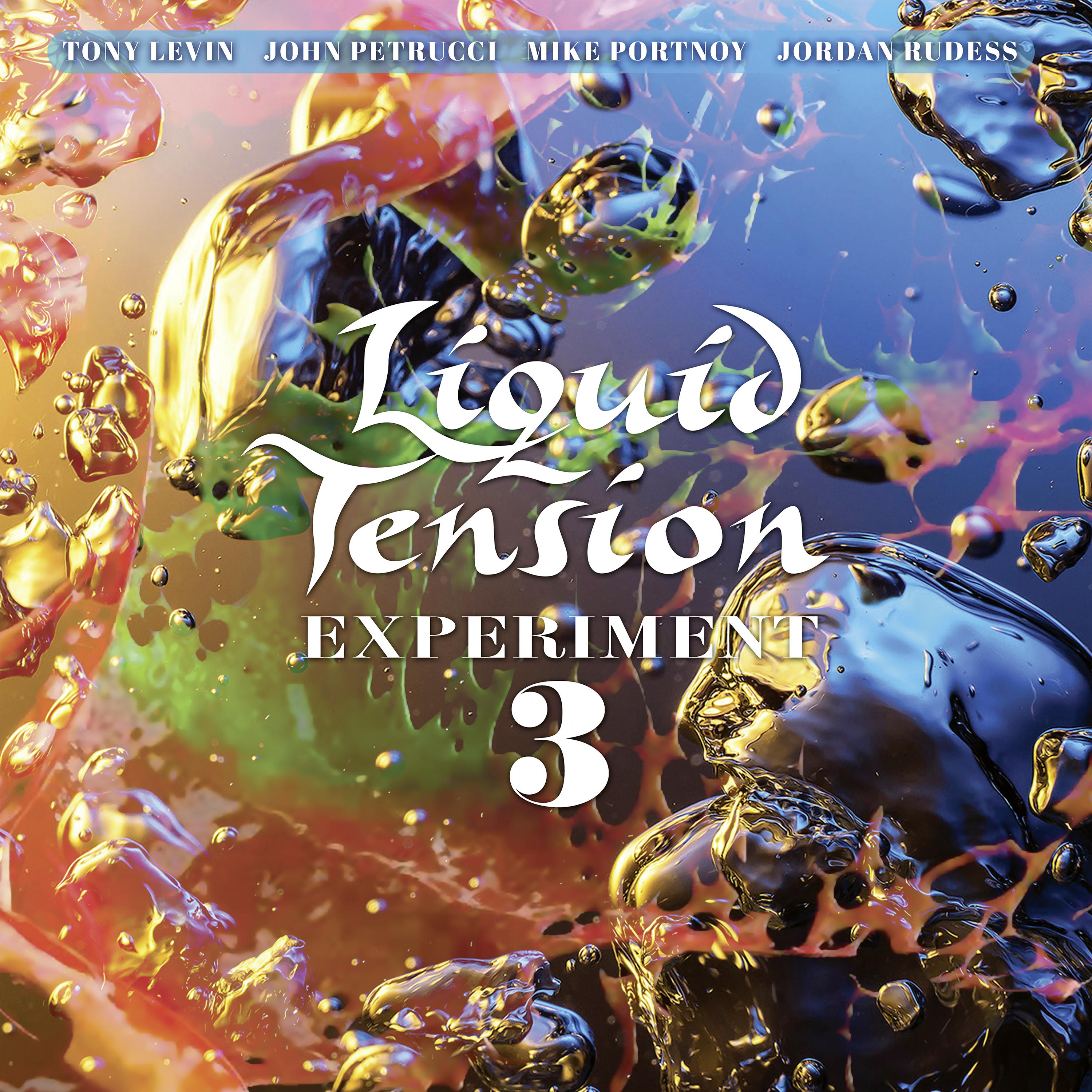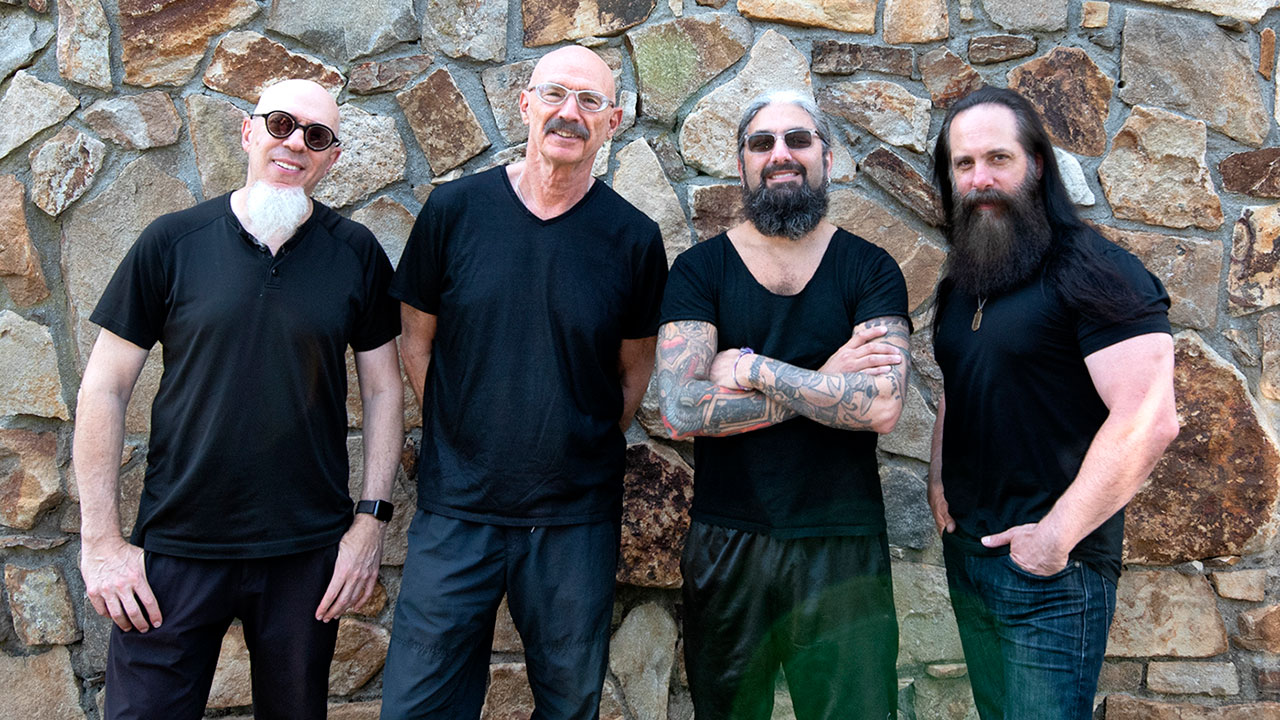The return of Liquid Tension Experiment
After Mike Portnoy left Dream Theater few people thought they'd see prog supergroup Liquid Tension Experiment again. But in 2021 that's exactly what happened!

Select the newsletters you’d like to receive. Then, add your email to sign up.
You are now subscribed
Your newsletter sign-up was successful
Want to add more newsletters?

Every Friday
Louder
Louder’s weekly newsletter is jam-packed with the team’s personal highlights from the last seven days, including features, breaking news, reviews and tons of juicy exclusives from the world of alternative music.

Every Friday
Classic Rock
The Classic Rock newsletter is an essential read for the discerning rock fan. Every week we bring you the news, reviews and the very best features and interviews from our extensive archive. Written by rock fans for rock fans.

Every Friday
Metal Hammer
For the last four decades Metal Hammer has been the world’s greatest metal magazine. Created by metalheads for metalheads, ‘Hammer takes you behind the scenes, closer to the action, and nearer to the bands that you love the most.

Every Friday
Prog
The Prog newsletter brings you the very best of Prog Magazine and our website, every Friday. We'll deliver you the very latest news from the Prog universe, informative features and archive material from Prog’s impressive vault.
"There’s definitely magic and chemistry with this group of guys, that’s undeniable,” says Jordan Rudess. “Even the first day when we started to jam, oh yeah, we’re back.” The group of guys in question is Rudess, guitar monster John Petrucci, master of the bass and Chapman Stick Tony Levin, and prog’s reigning drum champ Mike Portnoy, known together as Liquid Tension Experiment. The last time this quartet released an album Bill Clinton was in the White House, the euro had just debuted as an international currency, and The Matrix was in cinemas. It’s taken a long time to get the band back together, a situation no doubt complicated by Portnoy’s departure from Dream Theater back in 2010, but then last year the drummer played on Petrucci’s solo album, Terminal Velocity.
“If it wasn’t for music as a creative outlet, I think I’d go completely mad,” says Petrucci when asked how he’s coping with being off the road for so long. But the upside to the suspension of touring has been the opportunity to resurrect the long-dormant LTE.
“It didn’t take this long because of lack of desire,” he reveals. “Those first two albums were a lot of fun, but man, everybody is just so busy. It was even hard for me to find the time to do a solo album, after 15 years I finally did a second solo album, so the silver lining of this horrible pandemic is everybody was home, not on tour, and had time.”
“The other big part of it certainly was that we went through a turbulent time in the Dream Theater world when Mike left, we couldn’t do it in that period because there was just so much going on,” says Rudess. “Quite honestly, I’ve been a big proponent of doing this whenever it was possible. I’d always say to everybody every now and then, ‘Hey, we should really do LTE. Come on guys, let’s do it!’”
While Petrucci and Portnoy were working on Terminal Velocity, texts started flying back and forth about regrouping LTE. “We keep talking about it, I said, ‘Sure, as soon as I’m done with my album’,” says Petrucci. “I don’t think they believed me, but I kept my promise. Eventually there were no more excuses. Pandemic, everything’s shut down, everyone’s home, no tours. ‘Guys, let’s do it’, life’s too short.”

So, in the summer of 2020, for the first time in more than two decades, Liquid Tension Experiment reassembled to write new music. The venue they chose was Dream Theater’s HQ in New York, which might have been awkward for a certain ex-Dream Theater drummer, but that wasn’t the case at all. “He actually recorded drums for my solo album here,” says Petrucci. “I think he was genuinely excited. When he was in the band, we talked about building something like this, but we were never able to do it, so he came in, he was like, ‘This place is so cool!’ He was actually like, ‘I have some stuff I can contribute to put on the walls!’ There was no awkwardness at all.”
Aside from an arrangement of Gershwin’s Rhapsody In Blue, all the tracks on Liquid Tension Experiment 3 are new compositions born from the writing session last summer. Aware of the long layoff, Rudess was keen to arrive at Dream Theater’s HQ with some ideas ready to go. “I was feeling like, it’s been a long time and I really want this to be great and I want to make sure that I can contribute some good stuff,” says Rudess. “What would happen if I went into the studio [and said], ‘Oh no, I can’t think of anything!’ That would really suck! So, I started to put together some ideas.”
Sign up below to get the latest from Prog, plus exclusive special offers, direct to your inbox!
Even while on vacation with his family in the weeks before LTE got together, Rudess had a little keyboard with him to put down ideas. “While they were playing in the sun, I was at this keyboard,” he says. “I was inspired because I knew it was coming and my objective was to come up with some stuff, but mostly I wanted to make sure that we covered that melodic side of LTE. Every day I’d put down ideas, four measures, eight measures, then I felt like I was prepared at least to offer something just in case I couldn’t think of anything in the moment.”
Happily, the years apart had done nothing to diminish the creative and personal dynamism between the players. “It couldn’t have been smoother and easier,” says Petrucci. “It’s like we never left. On the first two albums, Tony brought in his espresso machine, he’d make espressos for everybody, so he brought it in again. The next thing you know we’re jamming, and it was like no time had passed. There was no weirdness or anxiety, it was completely smooth, the chemistry was all there.”
LTE’s writing process is based around improvisation. The guys jam and record everything they play, then listen to what they’ve done to pick out their favourite ideas. “Jams are funny,” says Petrucci. “Somebody has an idea and you start to hear everybody understand the idea. It starts out of focus then it slowly comes into focus and, as you’re jamming, people start to understand the groove. Then you have to take it and say, ‘Let’s see, what was I doing there, how can
I make this into an actual part?’”
Rudess picks out the tune Beating The Odds as a salient example of how an LTE track is delivered into the world. It began with a riff from Petrucci. “It seemed almost like a commercial guitar riff, if you will,” says Rudess, “Really rocking, not necessarily prog but he was doing something with the time signature that we were all blinking, going, ‘What? What are you doing?’ It made us smile, at first it was a little bit of a challenge to understand what was happening but once we got it, we laughed and started to play, like ‘That’s really cool!’”

Asked how everyone had developed as musicians over the intervening years and how the chemistry had evolved, Petrucci replies, “It’s hard to say. There are subtleties. That’s a long period of time for musicians to develop their style and craft. I think there are things that really didn’t change on some level, like everybody’s musical personalities are very much intact, but I don’t know. Maybe everybody got better? There was just a lot of collaboration, songwriting confidence, and Tony was bringing in more ideas than ever before. We honed and developed our sounds. In other ways, nothing changed. The drum kit Mike used was my drum kit that he got for me, for my home studio. For my solo album he couldn’t get drums here because of the pandemic, so I’m like, ‘I’ll just bring this Tama kit that you got me’, so I was the drum roadie. Then he brought in supplemental drums, like old Dream Theater Octobans [tube toms], so in some ways nothing changed at all.”
One constant that remains is the desire to improve, something shared among the four members of the supergroup. While they might not be the young lions who cut the first two LTE records, they’re still hungry for a challenge and looking for growth. “I’m always thinking I’ve got to really practise,” says Rudess, noting the two different sides to his musical identity. “I use music as a healing force personally. I can settle into that space where I’m comfortable making the music and letting it out. There’s that comfort part, but there’s also the part that’s always reaching for more and is never truly comfortable and never going to say, ‘Okay, I’ve already proved myself so there’s nothing left for me to do.’”
It’s a sentiment shared by Petrucci, who’s not content to rest on his laurels and LTE3 is a reminder of the prodigious talents of everyone involved, from the blistering onslaught of Hypersonic to the richness of the arrangement in Key To The Imagination. “The funny thing about all of us is we never stop wanting to challenge ourselves. Nobody is lazy in that sense,” he says. “I always think your music and what you put out should always try to grow and get better and better, the sound of your recordings, the sound of your guitar tone, your playing, your songwriting, and this was no different. Nobody was in any way, shape or form complacent or lazy. In fact, everybody is even more toned. You’ve got 74/75-year-old Tony Levin playing like a 20-year-old on the Stick and upright bass. The guy has no limits, so it’s awesome.”
When LTE emerged in the late-1990s, instrumental prog was something of
a niche within the genre. Nowadays, from The Aristocrats to Plini, intense instrumental music is a growing movement, but can LTE ever match the popularity of the members’ better-known bands?
“LTE is a very unusual group as far as the kind of reach that we have,” says Rudess. “Through all the years hearing how many musicians were influenced by LTE, I hear from all these new bands, ‘Oh yeah, LTE is what got me into it.’ It’s pretty amazing. But that said, it’s instrumental music so I don’t think it’s really possible to have it be as wide-reaching as something with vocals like Dream Theater. It’s instrumental music, how far can it really go? Hey, I hope this next album is everywhere, but I don’t think instrumental music necessarily has that kind of reach.”
“We don’t have any false hopes, ‘Oh, how are we going to sell a million?’” says Petrucci. “The cool thing is that within the community we’re in with the Dream Theater fanbase and Mike’s fans, Tony’s unbelievably illustrious career and fanbase, people know about it. The word gets out, in fact so much so that there is no central Liquid Tension Experiment website or anything, it’s all done on our own platforms and the record label’s. We all agreed that’s the best way, just let people know it’s there.”
“Personally, and for all of us, it’s an important thing to keep going because we love to play,” says Rudess. “That kind of balance between the instruments is creatively, artistically something that’s of value to all of us, and it’s great that people can respond to that and enjoy it.”
“It’s not really a focus of something like this,” says Petrucci about the commercial potential of LTE, “but who doesn’t want their music to be heard by as many people as possible for the sheer reason it’s about sharing? Especially when you’re proud of something, I really want you to hear this.”
This article originally appeared in issue 118 of Prog Magazine.
After starting his writing career covering the unforgiving world of MMA, David moved into music journalism at Rhythm magazine, interviewing legends of the drum kit including Ginger Baker and Neil Peart. A regular contributor to Prog, he’s written for Metal Hammer, The Blues, Country Music Magazine and more. The author of Chasing Dragons: An Introduction To The Martial Arts Film, David shares his thoughts on kung fu movies in essays and videos for 88 Films, Arrow Films, and Eureka Entertainment. He firmly believes Steely Dan’s Reelin’ In The Years is the tuniest tune ever tuned.

